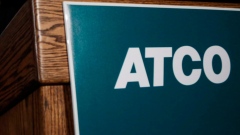Jun 9, 2016
South African firefighters in Alberta on strike over pay dispute

After less than a week on the job, 300 South African firefighters in Alberta have gone on strike in a pay dispute. The firefighters will be “demobilized” and flown home, their managers say.
The firefighters arrived in Canada last month, singing and dancing as they landed at Edmonton airport, gaining media attention across Canada and internationally.
But now they are angry that they are receiving an allowance of only $15 a day during their Canadian deployment, in addition to their South African salaries, despite promises of additional money.
Their organization, Working on Fire, said the firefighters would be getting a pay increase because of Canadian concerns that the South Africans would seem to be “slave labour” if they were paid substantially less than Canadian firefighters, who receive up to $26 per hour.
However, under a contract that the firefighters signed before their deployment, they are receiving $15 a day during their deployment, plus an additional $35 a day after they return home. This is in addition to their accommodation and other expenses, and their regular South African wages, which are as little as $200 a month.
A statement by the South African organization said there was “confusion” among the firefighters after media reports of the promised pay increase.
“We are dispatching a senior management team to Alberta this evening to address the firefighters’ concerns and to assist with the smooth demobilization of our firefighters and their safe return back home to South Africa,” the statement said.
The dispute began just north of Fort McMurray when a team of 60 South African firefighters met with an official from their government on Tuesday morning. A local contractor working with the team described the meeting to The Globe and Mail. Because Alberta’s forestry department has warned contractors that speaking with the media will lead to being barred from future contracts, the man has asked that his identity be withheld.
At an impromptu meeting in the field, the crew of firefighters learned on Tuesday that their pay wouldn’t be $50 daily, as many believed, but only $15, with the remainder paid out once the firefighters returned home. A similar setup existed in the past when a smaller number of South African firefighters were deployed in Canada, and some South African firefighters contend they were never paid the balance of their wages when they returned home.
The 300 South African firefighters currently in Alberta are staying in a camp about an hour and a half north of Fort McMurray. Soon after the crew found out on Tuesday, they refused to work and were put on buses back to their camp.
“It was pretty clear that within minutes they had a mutiny on their hand,” the contractor told The Globe and Mail.
“The organization running the South Africans tried to put these guys back on the bus when they got to camp, with the goal of getting them out of the country before the rest of the South Africans found out about the pay. They blocked the bus and didn’t let that happen.”
Early Wednesday morning all 300 firefighters went on strike. The men were only on the fifth day of a work stint scheduled to last 14 days, followed by three days of rest. They began working on June 3.
The Alberta government confirmed on Wednesday that the South African crews weren’t working due to a dispute. According to the Minister of Agriculture’s press secretary, the province can’t do anything in the dispute because it is between the firefighters and the South African government.
“They’ve got no money in the camps. They’re bumming smokes and trying to get razors of other fellows because they can’t afford them,” the contractor told The Globe.
A rookie Wildland firefighter working with the Alberta government makes over $14 hourly. The amount varies, depending on the type of crew they are working on.
Over 2,000 firefighters are now working on the Fort McMurray wildfire. Most are from Canada. Because the 300 South Africans were pulled off the fireline on Wednesday by the strike, there were shortages of personnel to fight the fire, according to the contractor.







